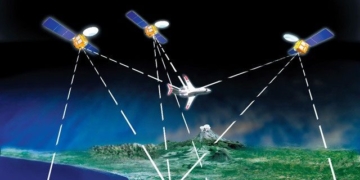mRNA Vaccine for Malignant Tumors Expected to Launch in 2025 Following Approval from US and European Regulators.
Recently, the US Food and Drug Administration (FDA) and the European Medicines Agency (EMA) recognized the mRNA therapy (mRNA-4157) in combination with the cancer drug Keytruda (pembrolizumab) for adjuvant treatment in patients with malignant tumors.
Previously, pharmaceutical companies Merck and Moderna reported promising results from a randomized clinical trial, phase 2b. The trial involved patients with high-risk malignant tumors (stage III/IV) following complete tumor removal.
The results indicated that treatment with mRNA-4157 combined with pembrolizumab improved patient survival rates, reducing the risk of recurrence or death by 49%, and the risk of metastasis by 62% compared to using pembrolizumab alone.
“This is the first evidence of the effectiveness of mRNA-based cancer treatment,” said Kyle Holen, Senior Vice President of Moderna, adding that this vaccine could be launched in 2025.

Vaccine test tube in Moderna’s laboratory. (Photo: Bloomberg).
The combination treatment has fewer side effects compared to using Keytruda alone. Patients commonly experience fatigue, injection site pain, and chills.
Based on this data, the FDA and EMA have recognized mRNA-4157 and Keytruda as breakthrough therapy under the Priority Drugs Program, designed for patients with high-risk malignant tumors.
mRNA Cancer Vaccine is Different from Conventional Vaccines. The focus of this vaccine is not prevention; rather, it is used as a personalized medicine, aimed at training the immune system of patients to fight against cancer. To create a vaccine dose, specialists will collect samples from the patient’s tumor and healthy tissue, arrange DNA and RNA sequences, and compare the differences to identify mutations that serve as antigens for the vaccine.
Explaining further about the vaccine’s mechanism of action, the American Cancer Research Institute states that through the vaccine, researchers attempt to elicit an immune response against the abnormal proteins of cancer cells. However, these proteins do not appear on normal cells and are not the same among individuals, which is why the vaccine needs to be customized. This allows the immune system to learn how to recognize cancer cells as distinct from the rest of the body.
Moderna is not the only company aiming to develop a cancer vaccine. In May 2023, BioNTech partnered with Merck to propose a phase one clinical trial for a pancreatic cancer vaccine. In June, at the American Society of Clinical Oncology conference, Transgene presented findings related to a viral vector vaccine for head and neck cancer prevention. In September, Ose Immunotherapeutics attracted attention with a vaccine for late-stage lung cancer.


















































